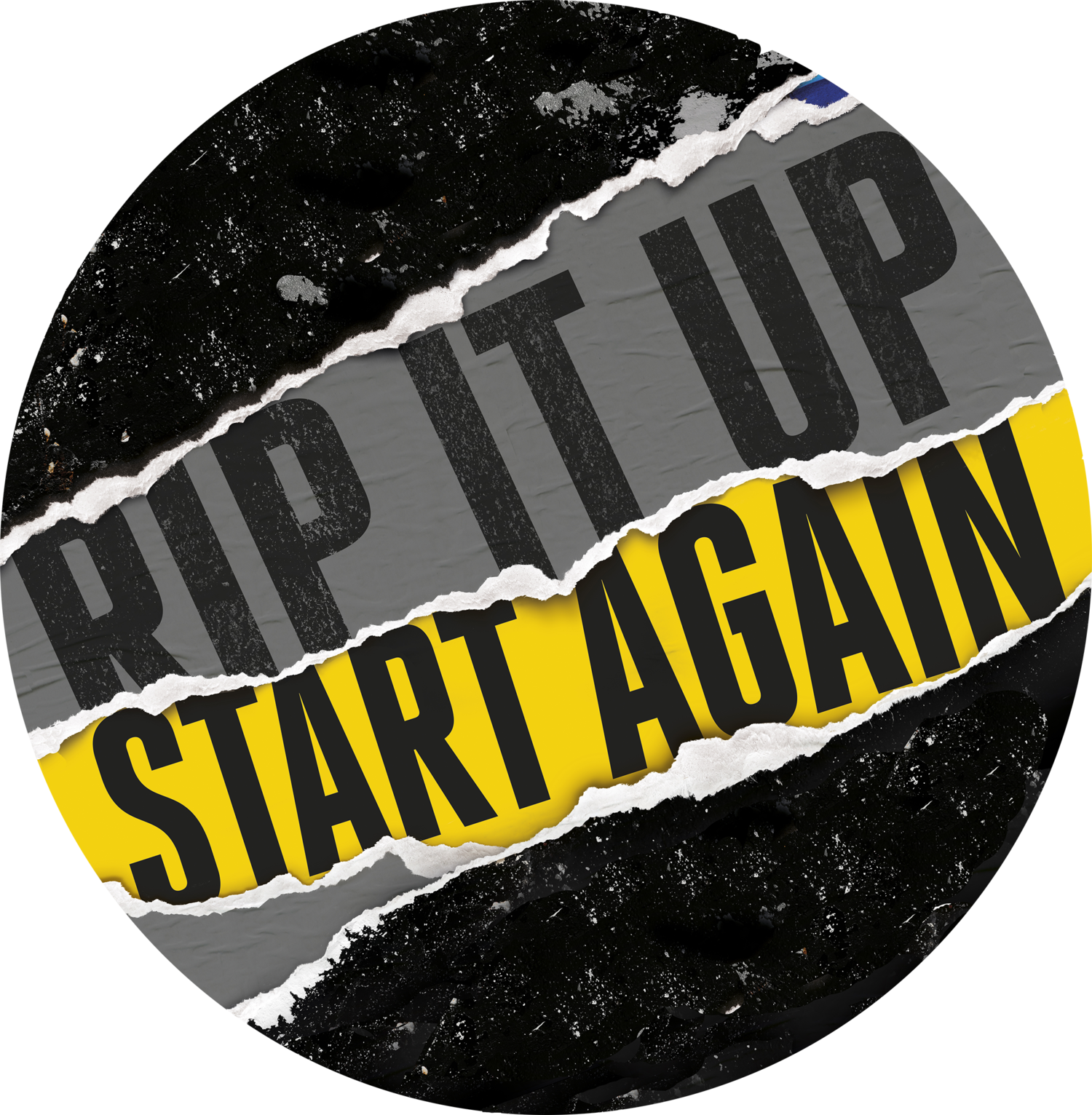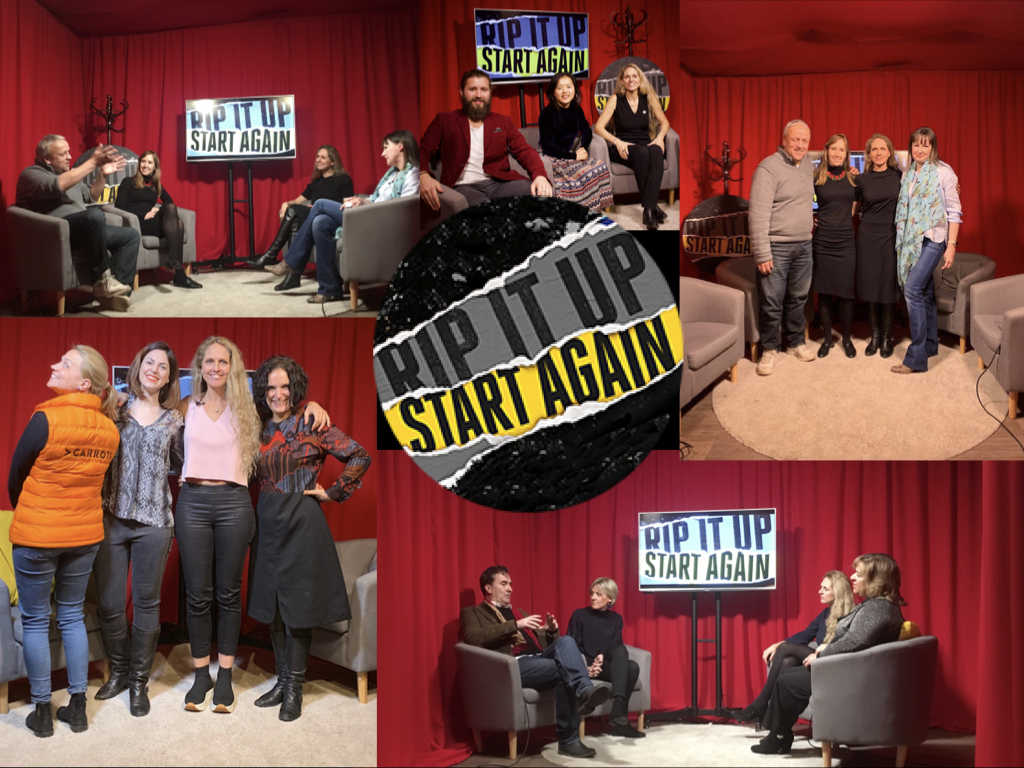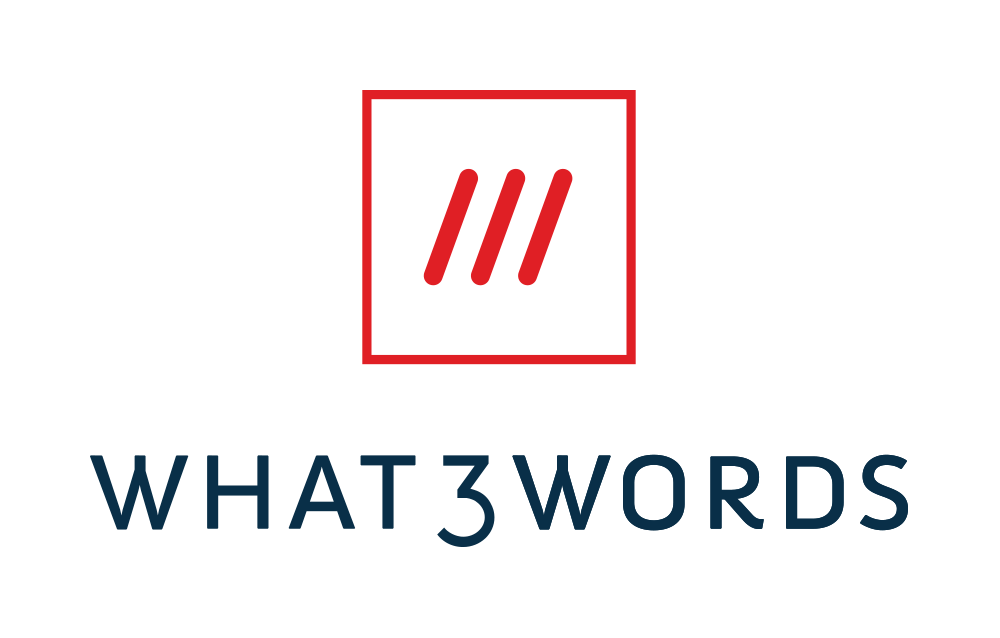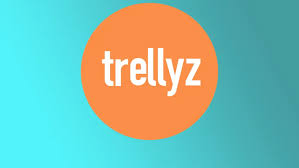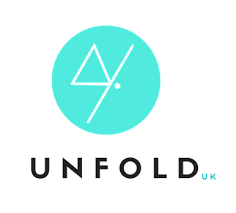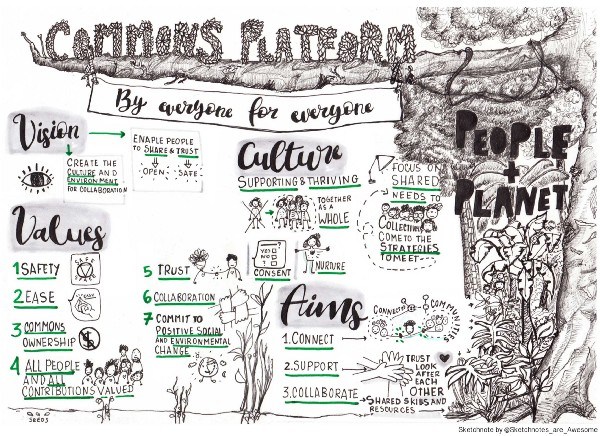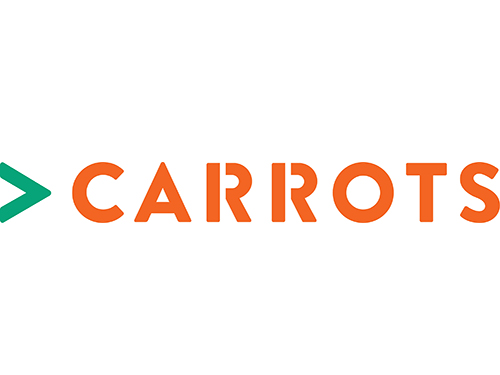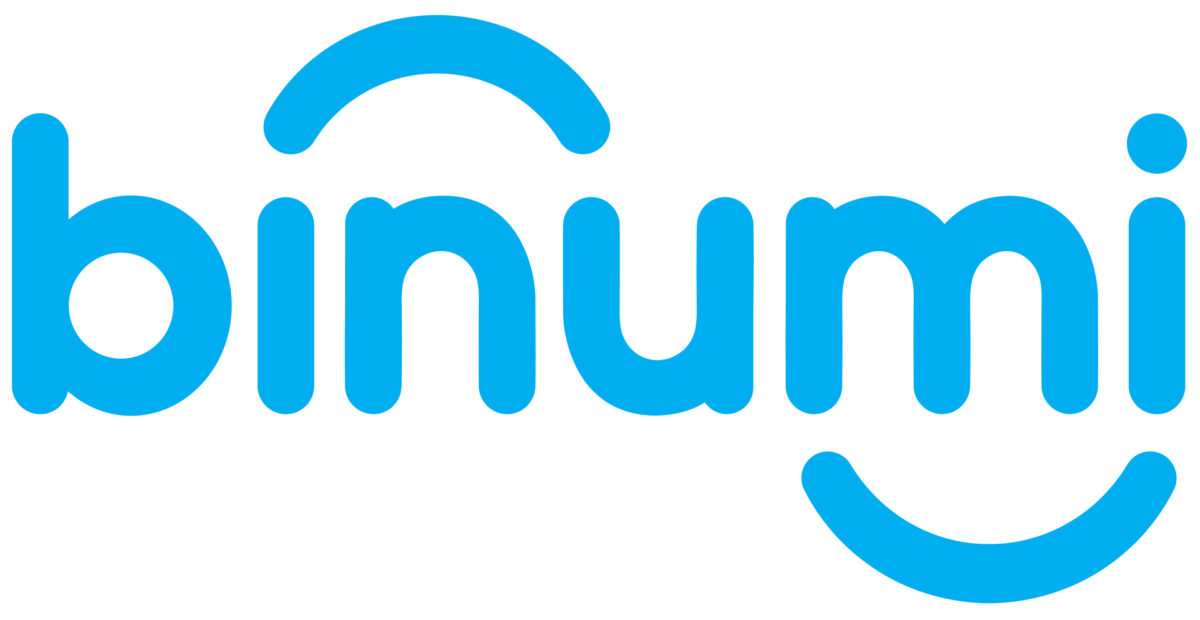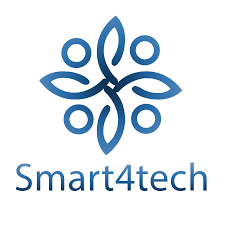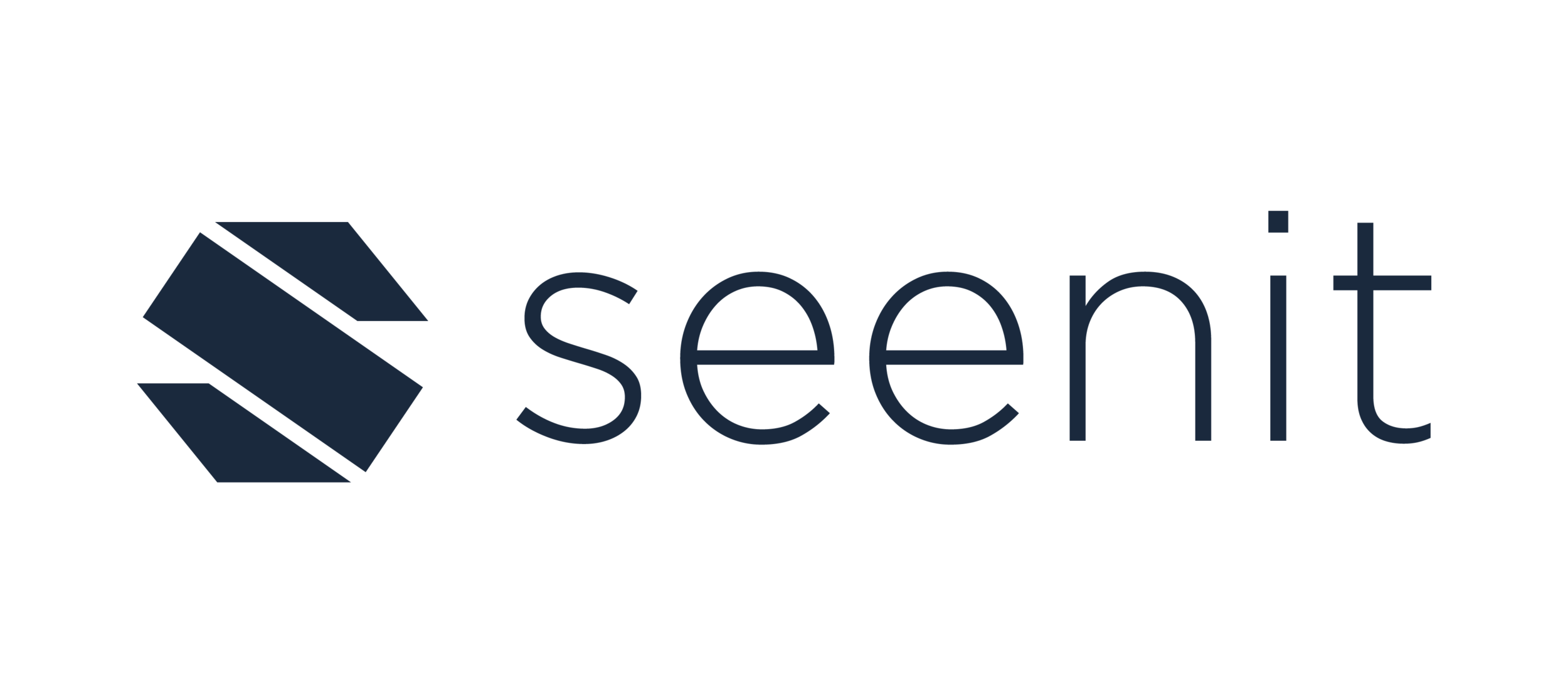Round 6: Credit Enable | Cap:Ratio | Futurice
/Rip It Up have partnered with Disruptive.live to bring you live pitches from some of the most exciting startups right now. Hosted by Lulu Laidlaw-Smith, this televised event includes a series of five-minute overview and backstory from entrepreneurs followed by an interactive Q&A. At the end of the episode, users get to vote for which startup they would invest in. This crowdsourcing approach gives a unique insight into what consumers want – and which startups could be the next unicorn. Winners are announced every quarter!
SPEAKER #1 Nadia Sood | Credit Enable
What is a disruptor? Nadia never thought of herself as one, even though she came from a family of engineers and social change makers. The conversation around the dinner table was about problems and solutions; always asking the question, what can we do to fix it? This attitude stayed with her. When she graduated, she joined the UN before going into the corporate sector and later into impact investing, looking for ways to advance both business and social change. It was during this time, about eight years ago, when she set up Impact Investment Partners to invest capital to make social change happen at scale. One thing that bothered her was that small businesses would get stuck with no way out other than to give away equity. These businesses might have strong founders, a strong business and strong revenue – but banks didn’t trust them or understand them. And this is a widespread problem. There’s up to $4.5 trillion in unmet demand for debt by credit-worthy companies that is not fulfilled by banks. Nadia came to the point where she either had to do something about it or stop talking about it. This is how she came to start Credit Enable. The company has a global vision to create a marketplace where borrowers and lenders can meet each efficiently and transparently to get what they need. This interaction is essentially a complex negotiation between human beings. There must first be understanding, then trust to work together before capital flows. Credit Enable brings a human element to the mix by co-creating with lenders and using technology to build products that reflect their needs. This makes things faster for lenders, simple for borrowers and creates a functional marketplace for the future. Find out more at creditenablesolutions.com.
SPEAKER #2 Gibran Registe-Charles | Cap:Ratio
Cap:Ratio is committed to the issue of financial exclusion. Gibran explains how his start-up uses traditional wealth management to service an audience that was previously neglected. In the UK, this audience is the underserved market, of which there are an estimated 26 million. The problem is that banking and finance were never meant for people like Gibran’s grandparents, who came over in the Windrush days. The first wave of migrants to the UK were seen as labourers to rebuild London after the Second World War. The irony is Jamaicans significantly contributed to the war effort and helped the RAF just a decade before. However, by the ‘50s, the UK was a difficult place for those making a new home here. These were, after all, the days of the no Irish, no blacks, no dogs,signs. Gibran’s vision was to create a fairer system by including those who lack the knowledge and helping them to be part of society. Financial exclusion is a massive problem, even in the UK. To put this in context, there are still millions of children living in poverty and an increasing wealth divide. For decades we have had this mechanism that allows people to achieve wealth – and now it’s time to open this up to other demographics that were historically sidelined. If anyone can create a fairer social platform for financial planning, it’s Cap:Ratio. Gibran has an established background in banking. He has been in the industry long enough to have seen several financial crashes; Black Monday, the dot-com bubble, and the 2018 crash. This experience informs the contingency plans available to clients, which is important when serving a demographic that traditionally do not trust banks. Through education, Cap:Ratio can reach this previously underserved market and help them for the first time to save and build wealth for their future. Find out more at capratio.co.
SPEAKER #3 Timo Hyvaoja | Futurice
Futurice is a digital engineering company employing over 500 people across Europe and the UK. Although they are known for their work with start-ups and large organisations, Timo (Managing Director at Futurice) wanted to share another side of their business – their company culture. Since they started 18 years ago, the company has pivoted many times and entered new markets. In other words, they are ‘disruptive’ by nature. They were growing at a rate of 25-30% per year and delivering thousands of projects to hundreds of clients, yet they were attracting attention for what was happening from within the business. Futurice was twice selected as the best place to work in Europe. So, how do you build this kind of great workplace that people talk about? According to Timo, it begins with the founders. In the case of Futurice, they set out to build a workplace where people wanted to come to work in the morning – and it was this ambition that took them from a start-up to a global company. They are now bringing this way of working to other businesses. Drawing from different industries, they look at what is working and what is causing problems, and then they co-create with the clients. Futurice is now teaching into several universities and building a robust system that can be replicated in other organisations. This is established around four core principles: trust, transparency, continuous improvement and caring. In fact, one of the most talked-about initiatives at Futurice is that their openness around salary. They share details of what each employee is earning across the company, which encourages equality and allows people to ask the reasoning behind their salary level. This is just one of the ways Futurice is disrupting established norms to create a fairer and more efficient model. They are now actively teaching others how to build a company that will last with a great culture. Find out more at futurice.com.
Q&A HIGHLIGHTS
On problems solved...
Gibran Registe-Charles: ““For our audience, after the bills and the kids etc., they’re not thinking ‘oh, let’s go and invest it or save it’, it’s ‘let’s go to the pub’ or someone’s birthday. They might put a deposit on a holiday because, in their mindset and how they’ve been brought up, they wouldn't save for a house. It’s a generational thing of not being able to be part of the financial system which dates back maybe to 70 years. We do three things: we give you access to wealth management, we provide education for our content, and we protect your assets as well. We try and give you as much support going forward in your financial securities as possible. What we see now with this explosion of poverty in the UK is just a generation of not knowing that they can part of it; some high finance and banking is only deemed for one type of sort of personal society, therefore my sector feels ignored, excluded, and then they go on thinking ‘oh, that’s not for me, that’s not for me’ and then you just perpetuate this sort of financial ignorance and mistrust.”
Nadia Sood: “Credit Enable is a credit insight and technology company. but the big problem we’re trying to solve is why that $4.5 trillion that should go to small businesses isn't going to them. And the fact that it doesn’t go to them, you might look at it at a financial level as very impactful, but it has a much more negative societal impact. For every hundred dollars of debt going into a company, for example, they can create another five jobs, so if you think about another $4.5 trillion not getting to them, think about how many jobs aren’t being created. And then if you think five more people get jobs, that impacts on all those five peoples’ families. If there’s an inefficiency that huge in the market, it’s having a massively negative effect. We’re trying to solve this problem, why is this not working properly? It comes back to two main issues. It’s a lack of knowledge and lack of access to data, but underpinning that is lack of trust, and because if you can’t see something, feel it, touch it, analyze it, then you can’t trust in it, so if you can fix the first issue, which is seeing, touching, analyzing, you can build the trust that needs to be there for the capital to flow and then you should be able to solve that problem.”
Timo Hyvaoja: The largest problem we are solving at the moment is how to build a great workplace. How we are able to make sure that the competition of talent is really high, in all the markets where we operate? How we are able to attract the best talent? How we are able to make sure that when a new person joins us, we are able to show them that we trust them? For example, giving them a company credit card, on day one — that’s one way, but then what else can we bring into the mix so that we can make sure that whenever a person joins us, no matter how junior or senior they are, that we provide you something they value. What we are now looking into is how can we create a learning platform? How can we make sure that, when the new person joins, we push him or her to this kind of continuous learning path?"
On trust...
Gibran Registe-Charles: “They’re not a ‘wealth management' type of person, without a doubt. They’re having a hard enough time with their own bank, never mind trying to sign up to a new app on the phone, so I think we have to be very clear and very simple about what we do. One of our three cornerstones are can we can relate, we can communicate, if we can communicate, we can educate. I think they’re pillars of how we build our business and how we can then pass that knowledge to our clients. A client then begins to trust us because we know their paying points, we know how they spend their money, we know what they spend their money on, we know that. And also, it's about using technology and things like social media and Youtube so they can relate and go ‘right, I know he runs the company, I can see his face’. They don’t know who’s inside a big bank, they don’t know what the owner looks like. All these tiny elements help to create the community and this trust element which is so important for what we do in finance.”
Nadia Sood: “Trust is absolutely paramount. I mean, first of all, our clients, who are lenders, have to trust in the veracity of what we’re preparing for, datasets have to be extremely clean, they have to be well-organized, they have to feel a high degree of confidence that we’re the best of doing that, and the best at being objective so we’re not trying to push them to make a decision that will be contrary to what they need to do. On the other side of the equation, we’re trying to bring borrowers into this marketplace and try to help them participate in a meaningful and efficient manner. Right now, their life looks like if they need a loan of twenty-five thousand dollars, they have to see five lenders, spend four weeks at a time with each of the lenders trying to convince them that this is a good idea to lend to them, obviously this is hugely a negative detractor for their day-to-day work and their ability to grow their business, so we need to cut that down, but for them to enter the marketplace, they need to feel trust in the marketplace.”
Timo Hyvaoja: “Trust is one of the core values of Futurice. For example, when a new employee joins, what are the things we can do to show trust? So it means the recruitment process is really important, to find the people that have the skills and capabilities to work in our environment where basically trust is a given. We want to create organizations where you are not told what to do; instead you are always able to come back to that leadership and say, ‘hey, actually, I’ve got this kind of idea’ or ‘what we could do here or what we could do there’, so we encourage them to rise and shine in a way that we don’t want to build a kind of hierarchy and then push people down. Say you’ve got the credit card, but whenever you’re using it, you should come to ask for permission. We don’t have that. Or when you’re using it, someone will come and accept your travel expenses. We don’t do that. In our opinion that it’s a waste of time, there’s no need to do that, because we trust. Whenever you are doing a decision, no matter how big or small, you should be thinking about three different angles. You would think about our people, you need to be thinking about our clients, what the impact is for them for the decision that you are making, and then you need to be thinking about our company numbers, so basically what’s the impact, the bottom line on the decision that you do.”
On validation…
Gibran Registe-Charles: “I think we’re the antithesis of how most startups work. Most startups will have a product, and then they’ll try and find a market fit. I spent a year in Brussels working in Parliament on the Economy Affairs Committee, so I was privy to the rules and data, especially in banking. I saw the disparity and the sort of massive wealth divide within the UK. So then I came back and did more digging around. There was this problem of the underserved community, those who earn under £30,000 a year. We built a forum on Facebook to find out questions and see them directly, so we asked a thousand people, ‘What did you spend your money on? Do you trust banks? What do you know about wealth management?’ And you know most were like, ‘I have no idea what that is, that’s quite a scary word to me.’ We had to dig down and say, ‘What if we were able to give you something like this for low-cost, you know, like a pound or ten pounds? Have an account?’ And they were like, ‘Yeah, great.’ One of the things is that banks don’t deliver. They make a profit, but they’re not delivering. We’re going to have clients use and test it our technology, and also reward them as well for being a part of it. So that was important, and that saves a lot of time as well.”
Nadia Sood: ““Validating anything in the financial services sector is very difficult and validating things with a community that typically has been badly served by that same financial services sector is equally difficult. Like Timo, we first wrote a credit algorithm, then we tested that credit algorithm over two and a half billion dollars of SME loans together with lenders so they could get comfortable in the way we were trying to help them become more efficient. Now we can allow them to be 200 times more efficient in going through a credit application to understand whether the company can absorb debt. Then we built a technology wrap-around around that once we knew that there was a need and that we were able to address the need. With the borrowers, we knew what the issues were because we were talking to them all the time about ‘why aren’t you getting debt?’, ‘what’s the challenge for you?’, how complicated it is, and we spent a lot of time talking to them. We found out very interesting things, like there’s a huge amount of information out there for them but to get the information they need, they had to go to 50 different websites, which is hugely time-consuming.”
Timo Hyvaoja: “We need to make sure that what we do is relevant for our clients, that we have the skillset or the competence or the offering that is relevant. When we are going there to work with our clients, we are listening to them all the time; we are asking for feedback all the time so that we can understand the key issues and then what will their problems be in a couple of years ahead. We are using this information then as being client-centric, doing it all to build our company forward, so we don’t go into the high altitude camp and try to come up with what our new offering will be instead of talking with our clients. We understand where they are going, what they are needing, and then following the trends, what’s happening on the market, and then using that as validation and feedback for us to build the capabilities that we have in our company.”
On scaling up…
Gibran Registe-Charles: “We just took it really easy and built up a strong team, and probably will scale later. Our main challenge right now is making sure we can get this product out to people and build the audience that way, and then really push our team to deliver. I think it’s a tricky measurement to know when it’s the right time to scale. We’ve got a very simple model. The trust in it is important and once we get that right, then again, we can know what’s broken and what we need to fix. Our scaling can hopefully happen organically because we’re so transparent – part of our ability to accumulate more clients is the fact that we’re transparent, and you can see what we’re doing. We’re doing the podcast, the vlogs, you know, the daily updates of social media, and then referring friends and family should be easy because we’re there, that’s what it looks like, that’s what we’re doing. I think that attitude is how we’re going to solve it.”
Nadia Sood: “We’ve got 70 million people we need to try to service on one side; that’s a huge number. Technology is going to be critical and working with great technology partners who can help us build tools to intervene, but then how do you make technology human? To reach 70 million people in a meaningful way, you can’t just send out a text message and hope that it will, you know, fundamentally transform their life so we can use stories to help change behaviour, to help educate, to help communicate. And so for us, I think scale is really about, can we build something fantastic that can work in a very small group that all four of us would find engaging and useful, attractive and helpful, and take that and wrap it in technology so we can get it to a hundred thousand people and it would have the same emotional impact and the same day-to-day transformative effect for them.”
Timo Hyvaoja: “We are basically scaling in two different ways. There is Futurice as a group and as a consultancy company. We are looking for a steady, 25-30% annual growth, but then we established something called Futurice and Startups a few years ago which is our venturing and startup arm of our business. With this team, they are looking for different type of joint venture opportunities with our clients and at the same time looking for opportunities to launch new businesses. This year we launched our own first product, an AI company that is this kind of high-end freelancer platform. Like I said earlier, we like to disrupt our business, of course we are a consultancy company, we also establish our own freelancer company, so that means we are not afraid of the competition, even though we are building it for ourselves.”
On change…
Gibran Registe-Charles: “We’re educating through good content, and we are building models that are going to educate people about finance. We're going to make it accessible, and maybe describe finance in very ordinary terms. Like, ‘what is a portfolio?’ Well, a portfolio is like making a cake, for example, you’ve got ingredients. So breaking it down, I think that’s really important. Finance can be quite stressful. I think today's culture is really important, and having a good balance. When we do get bigger, which you do with finance, we want to make sure people are emotionally healthy, we want to make sure everyone’s comfortable.”
Nadia Sood: “Now we’re at a size where we really need to make sure we’re building foundations like the ones that Timo’s referring to. We want people to feel they can invest their whole selves in building this vision together with us because, at the end of a day, a company is just made up of its people. If they don’t share the vision or don’t feel it’s fulfilling, it’s never going to happen, so we really need to pay attention to that. For the next two years just really penetrating the Indian market, building up our client base there. We’re already working with five lenders, and we want to go to 30 lenders. Also, mobilizing our 70 million SMEs into hugely powerful, empowered community, which I know they can be because there are amazing entrepreneurs in there. They will be able to educate their own colleagues, their own peers, and then looking at other markets and other opportunities to take the technology platform we have, which is built for global scale, and find other clients who might need the services we provide.”
Timo Hyvaoja: ““We are going to invest in figuring out how we can create a consultancy company which will become this kind of ultimate learning platform. How are we able to help teach every employee how to become a better version of themselves? We are not a school, but how are we able to create such a model that we can continue the quality that we are delivering for our clients. At the same time, currently for our employees, we create this kind of learning path so that they can stay relevant, renewing their skillset, and not only about their core competence, but even looking wider. For example, helping software developers understand more about business or design, and then what we can do there. So that’s the thing where we are now going to invest in the coming years.”
